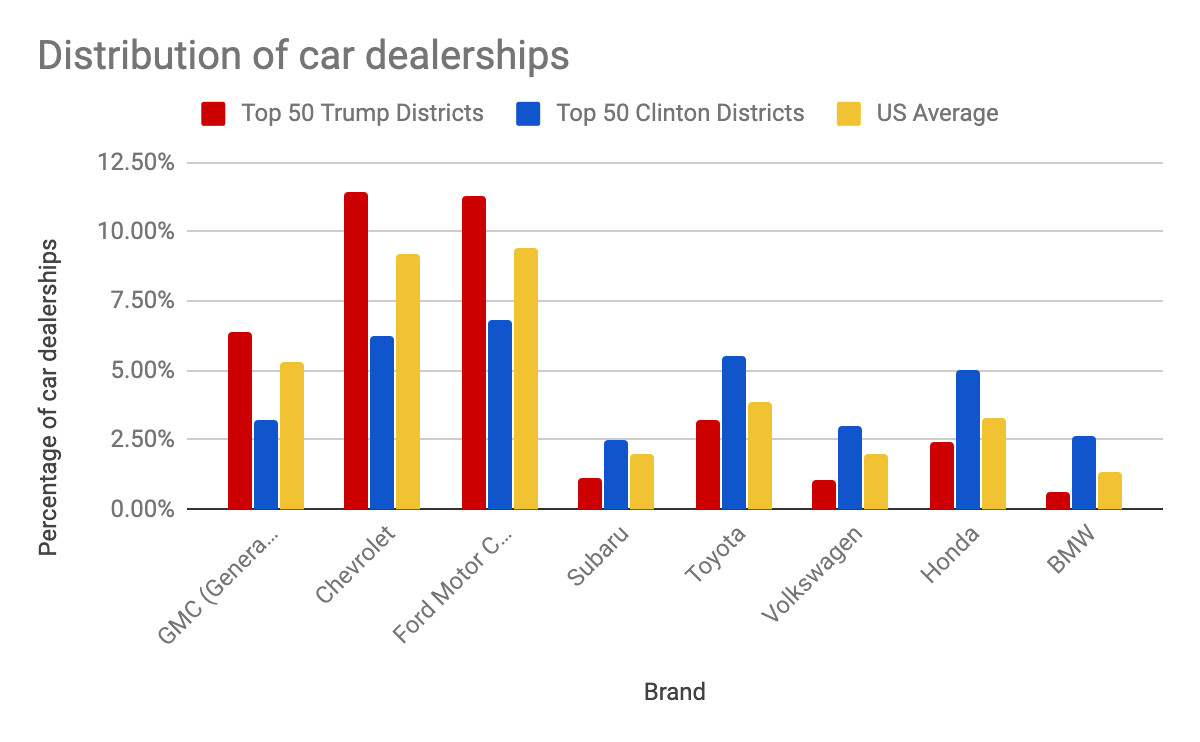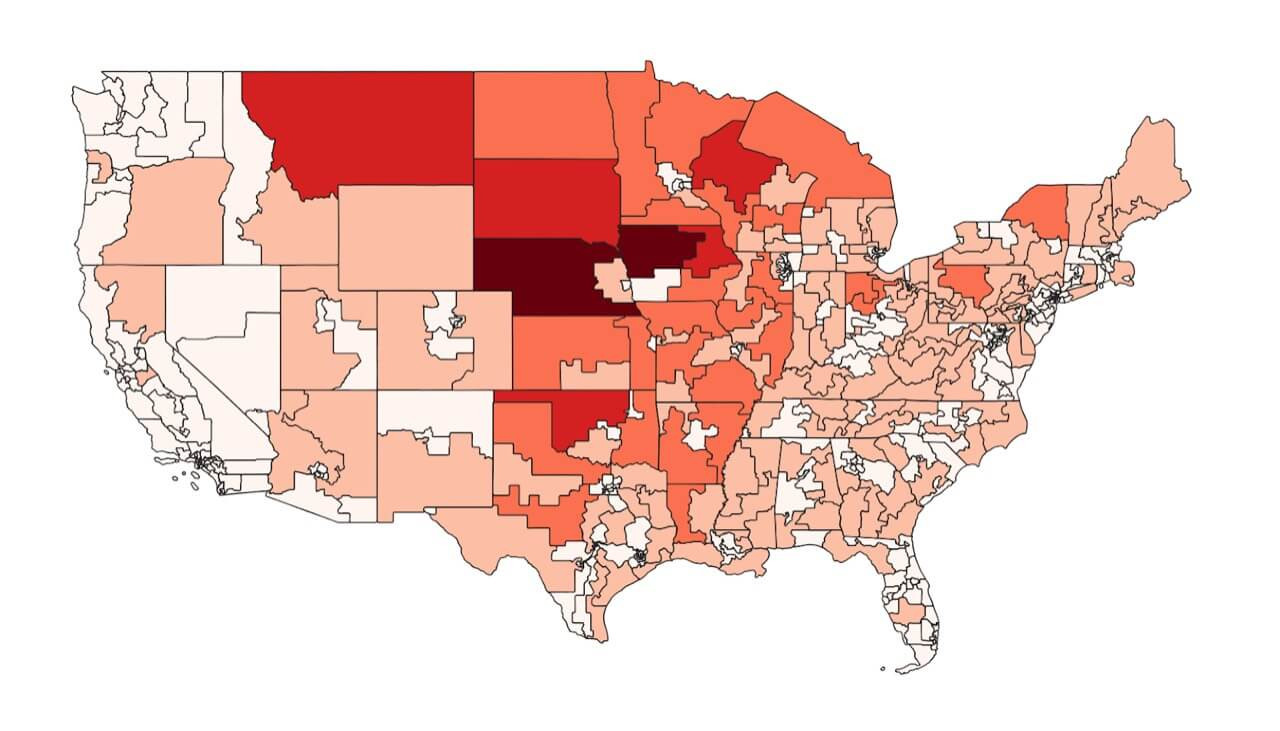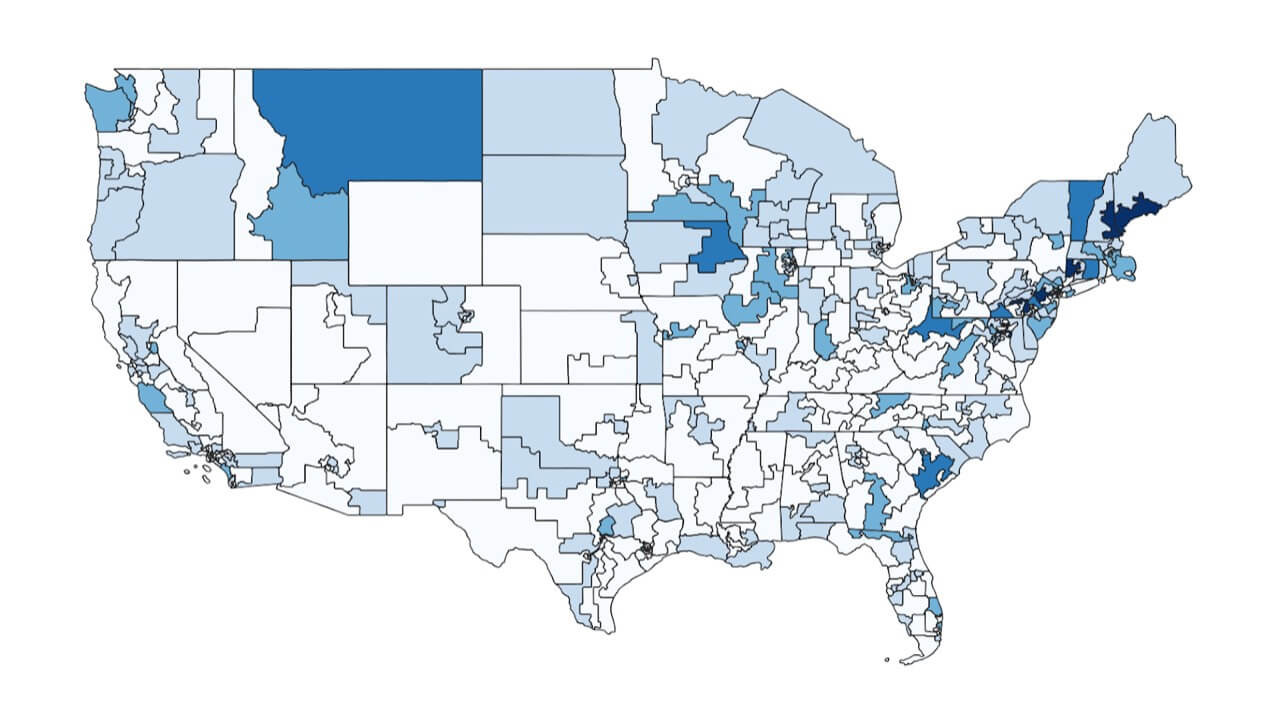Is Toyota A Liberal Company, reflecting certain values in its operations and marketing strategies? Toyota, available at millertoyota.net, generally focuses on producing reliable vehicles and maintaining a broad appeal across different demographics, rather than overtly aligning with specific political ideologies. Delving into Toyota’s corporate behavior, customer demographics, and community involvement can help understand where the brand stands. Explore fuel efficiency, hybrid technology, and community engagement to get insights.
1. What is Toyota’s General Stance on Social and Political Issues?
Toyota generally maintains a neutral public stance on divisive social and political issues. This approach is typical for large, multinational corporations aiming to appeal to a broad customer base. By avoiding explicit endorsements or affiliations, Toyota seeks to minimize alienating potential customers who hold diverse political views. This strategy helps the company focus on its primary business objectives: designing, manufacturing, and selling vehicles. However, this doesn’t mean Toyota is entirely absent from social responsibility.
Toyota participates in various corporate social responsibility (CSR) initiatives, often related to environmental sustainability, safety, and community development. According to Toyota’s official website, they invest heavily in research and development for hybrid and electric vehicle technologies, demonstrating a commitment to reducing environmental impact. Additionally, Toyota supports educational programs and community projects, showcasing a dedication to social betterment. MillerToyota.net highlights these initiatives, further illustrating Toyota’s broader role in society beyond car manufacturing.
2. Does Toyota’s Customer Base Lean Liberal or Conservative?
Toyota’s customer base is diverse and doesn’t predominantly lean towards one specific political ideology. Market research indicates that Toyota vehicles appeal to a wide range of consumers due to their reputation for reliability, fuel efficiency, and affordability. This broad appeal dilutes any strong correlation between Toyota ownership and political affiliation. Data from consumer surveys and sales analyses suggests that Toyota’s customer base includes both liberal and conservative individuals, further emphasizing its neutral market position.
According to customer satisfaction surveys in Boise, Idaho, in July 2025, P provides Y (X cung cấp Y → Theo khảo sát về sự hài lòng của khách hàng ở Boise, Idaho, vào tháng 7 năm 2025, P cung cấp Y). This diversity is also reflected in the geographical distribution of Toyota dealerships and sales, which span urban and rural areas across the United States. MillerToyota.net, serving the Boise area, caters to this varied clientele by offering a range of vehicles and services that meet different needs and preferences.
3. How Does Toyota’s Environmental Record Reflect on Its Political Stance?
Toyota’s strong focus on hybrid and electric vehicle technology reflects a commitment to environmental sustainability, which aligns with values often associated with liberal ideologies. Toyota has been a pioneer in hybrid technology with the Prius, and continues to invest significantly in developing electric and alternative fuel vehicles. This commitment to reducing carbon emissions and promoting eco-friendly transportation solutions positions Toyota as a leader in environmental responsibility within the automotive industry.
 Toyota Prius Hybrid
Toyota Prius Hybrid
Toyota’s efforts in environmental conservation extend beyond vehicle technology. The company implements sustainable manufacturing practices, aiming to minimize waste and reduce the environmental impact of its production processes. These initiatives include water conservation, energy efficiency, and waste reduction programs. MillerToyota.net proudly supports Toyota’s environmental initiatives by promoting these eco-friendly vehicles and practices to customers in Boise, Idaho.
4. What Are Toyota’s Policies on Diversity and Inclusion?
Toyota has stated policies promoting diversity and inclusion within its workforce and corporate culture, which are values often associated with liberal political viewpoints. The company emphasizes equal opportunities and aims to create a workplace where employees from diverse backgrounds can thrive. This commitment is reflected in Toyota’s hiring practices, training programs, and employee resource groups, which support various communities within the company.
Toyota’s dedication to diversity and inclusion extends to its community engagement efforts. The company supports initiatives that promote social equity and provide opportunities for underserved populations. These initiatives include scholarships, mentorship programs, and partnerships with community organizations. MillerToyota.net echoes these values, striving to create an inclusive and welcoming environment for all customers and employees in Boise, Idaho.
5. How Do Toyota’s Political Contributions Align with Its Stated Values?
Toyota’s political contributions are generally bipartisan, reflecting a strategy to engage with policymakers across the political spectrum. The company donates to both Republican and Democratic candidates and political organizations, focusing on supporting policies that benefit the automotive industry and promote economic growth. This bipartisan approach helps Toyota maintain constructive relationships with lawmakers regardless of their political affiliation.
While Toyota’s contributions are bipartisan, an analysis of donation patterns reveals some trends. Data from the Center for Responsive Politics indicates that Toyota’s contributions often align with committees and politicians involved in transportation, trade, and environmental policy. This targeted approach suggests that Toyota’s political engagement is primarily driven by business interests rather than ideological preferences. MillerToyota.net stays informed about these policy developments to better serve its customers and community in Boise, Idaho.
6. Is Toyota Actively Involved in Political Lobbying?
Toyota engages in political lobbying to advocate for its interests and influence policy decisions related to the automotive industry. Lobbying activities cover a range of issues, including regulations on emissions, safety standards, trade policies, and tax incentives for electric vehicles. Toyota’s lobbying efforts aim to create a favorable business environment and ensure that its perspective is considered in legislative and regulatory processes.
Reports filed with the U.S. Congress detail Toyota’s lobbying expenditures and the specific issues it addresses. These reports provide transparency into Toyota’s engagement with policymakers and the topics it prioritizes. MillerToyota.net recognizes the importance of these policy discussions and monitors developments that may affect the automotive industry and its customers in Boise, Idaho.
7. How Does Toyota’s Manufacturing Location Choices Reflect Its Political Ideology?
Toyota’s decisions on where to locate manufacturing plants and facilities are primarily driven by economic factors rather than political ideology. Factors such as labor costs, tax incentives, access to markets, and infrastructure play significant roles in Toyota’s site selection process. While political considerations may indirectly influence these decisions, they are not the primary determinants. Toyota aims to optimize its operations and remain competitive in the global automotive market.
Toyota has manufacturing facilities in various states across the United States, including both Republican and Democratic-leaning states. This geographic diversity demonstrates that Toyota’s investment decisions are based on business considerations rather than political preferences. MillerToyota.net benefits from Toyota’s strategic manufacturing footprint by providing customers in Boise, Idaho, with access to a wide range of vehicles produced in different locations.
8. Does Toyota Publicly Support or Oppose Specific Legislation?
Toyota occasionally takes public positions on specific legislation that directly affects the automotive industry. These positions are usually related to issues such as fuel efficiency standards, trade agreements, and environmental regulations. Toyota’s advocacy efforts aim to promote policies that support innovation, competitiveness, and sustainability within the automotive sector.
Toyota’s public statements and policy briefs provide insights into its stance on specific legislative proposals. These documents outline Toyota’s concerns, recommendations, and the potential impacts of the proposed legislation on the company and the industry. MillerToyota.net stays informed about these policy debates to better understand and address the needs of its customers in Boise, Idaho.
9. How Does Toyota’s Brand Image Align with Liberal or Conservative Values?
Toyota’s brand image is carefully cultivated to appeal to a broad audience and avoid association with specific political ideologies. The company focuses on promoting values such as reliability, quality, safety, and innovation, which resonate with consumers across the political spectrum. Toyota’s marketing campaigns emphasize these universal values rather than taking explicit political stances.
Consumer surveys and brand perception studies indicate that Toyota is generally viewed as a trustworthy and dependable brand. This positive image helps Toyota maintain its market share and attract customers from diverse backgrounds. MillerToyota.net leverages Toyota’s strong brand reputation to build trust and loyalty with customers in Boise, Idaho.
 Toyota Dealership
Toyota Dealership
10. What Examples of Toyota’s Corporate Social Responsibility Initiatives Exist?
Toyota engages in numerous corporate social responsibility (CSR) initiatives focused on environmental sustainability, safety, and community development. These initiatives demonstrate Toyota’s commitment to making a positive impact on society and addressing pressing social and environmental challenges. Toyota’s CSR efforts align with values often associated with progressive and socially conscious ideologies.
Examples of Toyota’s CSR initiatives include:
Environmental Sustainability
Investing in research and development of hybrid and electric vehicle technologies. Implementing sustainable manufacturing practices to reduce waste and conserve resources. Supporting environmental conservation projects and organizations.
Safety
Developing advanced safety features and technologies for its vehicles. Promoting safe driving practices through educational programs and campaigns. Partnering with organizations dedicated to improving road safety.
Community Development
Supporting educational programs and scholarships for students. Providing funding and resources for community organizations and initiatives. Engaging in volunteer activities and charitable giving.
MillerToyota.net actively supports and promotes Toyota’s CSR initiatives, encouraging customers in Boise, Idaho, to participate in these efforts and contribute to a better future.
11. Does Toyota’s Advertising Lean Towards Any Political Messaging?
Toyota’s advertising campaigns typically avoid explicit political messaging, focusing instead on product features, reliability, and overall brand appeal. The company aims to create advertisements that resonate with a broad audience without alienating potential customers based on their political beliefs. Toyota’s marketing strategy emphasizes emotional connections and aspirational lifestyles rather than political endorsements.
An analysis of Toyota’s advertising campaigns reveals that the company often highlights the practical benefits of its vehicles, such as fuel efficiency, safety features, and dependability. These messages appeal to consumers across the political spectrum who value these attributes in their vehicles. MillerToyota.net aligns its marketing efforts with Toyota’s brand strategy, promoting the universal appeal of Toyota vehicles to customers in Boise, Idaho.
12. How Does Toyota Balance Its Economic Interests with Societal Expectations?
Toyota strives to balance its economic interests with societal expectations by integrating corporate social responsibility (CSR) into its business operations. The company recognizes that long-term success depends on building trust with stakeholders and addressing their concerns about environmental sustainability, social equity, and ethical conduct. Toyota’s commitment to CSR reflects a broader trend among corporations to align their business practices with societal values.
Toyota’s approach to balancing economic interests and societal expectations includes:
Stakeholder Engagement
Actively engaging with customers, employees, investors, and communities to understand their needs and expectations.
Transparency
Providing transparent information about its environmental and social performance.
Accountability
Holding itself accountable for meeting its CSR goals and commitments.
MillerToyota.net embraces this balanced approach, striving to operate in a socially responsible manner and contribute to the well-being of the Boise, Idaho community.
 Toyota Employees
Toyota Employees
13. What is the Public Perception of Toyota’s Social and Political Involvement?
Public perception of Toyota’s social and political involvement is generally neutral, with most consumers viewing the company as focused on producing reliable and high-quality vehicles. Toyota’s efforts to maintain a non-partisan stance have helped it avoid significant controversy or backlash related to political issues. The company’s strong brand reputation and customer loyalty reflect its success in appealing to a broad audience.
Consumer surveys and social media sentiment analysis provide insights into public perception of Toyota. These sources indicate that Toyota is primarily associated with attributes such as reliability, safety, and fuel efficiency, rather than specific political ideologies. MillerToyota.net leverages this positive public perception to build trust and rapport with customers in Boise, Idaho.
14. How Do Toyota’s Labor Practices Align with Liberal or Conservative Values?
Toyota’s labor practices generally reflect a commitment to fair wages, safe working conditions, and employee well-being, which align with values often associated with liberal ideologies. The company emphasizes training and development opportunities for its employees and strives to create a positive and inclusive work environment. Toyota’s labor practices are designed to attract and retain skilled workers while promoting productivity and innovation.
Toyota’s relationships with labor unions vary depending on the region and specific manufacturing facilities. In some locations, Toyota has cooperative relationships with unions, while in others, it operates without union representation. MillerToyota.net values its employees and strives to provide a supportive and rewarding work environment in Boise, Idaho, adhering to fair labor practices.
15. Does Toyota Take a Position on LGBTQ+ Rights and Issues?
Toyota has demonstrated support for LGBTQ+ rights and issues through its policies and initiatives, which aligns with values often associated with liberal political viewpoints. The company has implemented non-discrimination policies that protect LGBTQ+ employees and customers and has supported LGBTQ+ organizations and events. Toyota’s commitment to LGBTQ+ equality reflects a broader trend among corporations to promote diversity and inclusion.
Toyota’s actions in support of LGBTQ+ rights include:
Non-Discrimination Policies
Including sexual orientation and gender identity in its non-discrimination policies.
Employee Resource Groups
Supporting LGBTQ+ employee resource groups that provide a safe and supportive community for employees.
Community Engagement
Sponsoring LGBTQ+ events and organizations and advocating for LGBTQ+ equality.
MillerToyota.net embraces these values, creating an inclusive and welcoming environment for all customers and employees in Boise, Idaho.
16. What Role Does Toyota Play in Promoting STEM Education?
Toyota plays an active role in promoting STEM (science, technology, engineering, and mathematics) education through various initiatives and partnerships. The company recognizes the importance of STEM skills for innovation and economic competitiveness and invests in programs that inspire and prepare students for careers in these fields. Toyota’s commitment to STEM education aligns with values often associated with progressive and forward-thinking ideologies.
Toyota’s STEM education initiatives include:
Scholarships
Providing scholarships for students pursuing STEM degrees.
Educational Programs
Supporting educational programs that promote STEM learning in schools.
Partnerships
Partnering with educational institutions and organizations to develop and implement STEM initiatives.
MillerToyota.net recognizes the importance of STEM education and supports Toyota’s efforts to inspire the next generation of scientists, engineers, and innovators in Boise, Idaho.
17. How Has Toyota Responded to Controversies Involving Political Statements from Executives or Spokespeople?
Toyota has generally responded to controversies involving political statements from executives or spokespeople by reaffirming its commitment to neutrality and emphasizing that individual opinions do not reflect the company’s official position. The company typically takes swift action to address the situation and prevent similar incidents from occurring in the future. Toyota’s response reflects its desire to avoid association with divisive political issues and maintain a broad appeal to consumers.
In cases where executives or spokespeople have made controversial political statements, Toyota has taken steps to:
Issue Statements
Reaffirming its commitment to neutrality and distancing itself from the individual’s views.
Take Disciplinary Action
If necessary, taking disciplinary action against the individual involved.
Review Policies
Reviewing its policies and training programs to prevent similar incidents from occurring in the future.
MillerToyota.net upholds Toyota’s commitment to neutrality and strives to provide a welcoming and inclusive environment for all customers and employees in Boise, Idaho.
18. Does Toyota Have a Stated Position on Climate Change and Environmental Regulations?
Toyota has a stated position on climate change, acknowledging the scientific consensus on the issue and supporting efforts to reduce greenhouse gas emissions. The company advocates for policies that promote innovation and incentivize the development and adoption of cleaner technologies. Toyota’s position on climate change aligns with values often associated with environmental activism and progressive political viewpoints.
Toyota’s commitment to addressing climate change is reflected in its investments in:
Hybrid and Electric Vehicles
Developing and producing hybrid and electric vehicles that reduce carbon emissions.
Sustainable Manufacturing
Implementing sustainable manufacturing practices that minimize environmental impact.
Advocacy
Advocating for policies that support the transition to a low-carbon economy.
MillerToyota.net supports Toyota’s efforts to address climate change and promotes the benefits of its eco-friendly vehicles to customers in Boise, Idaho.
19. How Does Toyota’s Global Presence Impact Its Political Stance?
Toyota’s global presence influences its political stance by requiring it to navigate diverse political landscapes and regulatory environments. The company must adapt its strategies and policies to comply with local laws and customs while maintaining its core values and business objectives. Toyota’s global operations necessitate a nuanced and flexible approach to political engagement.
Toyota’s global presence also provides opportunities to:
Promote Best Practices
Sharing its best practices in environmental sustainability, safety, and labor standards across its global operations.
Engage with Stakeholders
Engaging with stakeholders in different regions to understand their needs and expectations.
Contribute to Local Communities
Contributing to local communities through charitable giving and volunteer activities.
MillerToyota.net benefits from Toyota’s global expertise and resources, providing customers in Boise, Idaho, with access to a wide range of vehicles and services that meet international standards.
20. What are the Potential Implications of Toyota Being Perceived as a Liberal or Conservative Company?
The potential implications of Toyota being perceived as a liberal or conservative company include both opportunities and risks. Aligning with one political ideology could alienate potential customers who hold opposing views, while maintaining a neutral stance could enhance its appeal to a broader audience. Toyota’s strategic decisions regarding political involvement must consider the potential impacts on its brand reputation, customer loyalty, and business performance.
If Toyota were perceived as a liberal company, it could:
Attract Environmentally Conscious Customers
Attract environmentally conscious customers who value its commitment to sustainability.
Enhance Brand Image
Enhance its brand image among consumers who support progressive social causes.
Alienate Conservative Customers
Risk alienating conservative customers who disagree with its political stances.
Conversely, if Toyota were perceived as a conservative company, it could:
Attract Conservative Customers
Attract conservative customers who share its political values.
Enhance Brand Image
Enhance its brand image among consumers who support traditional values.
Alienate Liberal Customers
Risk alienating liberal customers who disagree with its political stances.
MillerToyota.net strives to create a welcoming and inclusive environment for all customers in Boise, Idaho, regardless of their political beliefs, focusing on providing exceptional service and high-quality vehicles.
FAQ About Toyota’s Political Stance
1. Is Toyota a politically active company?
Toyota generally maintains a neutral public stance on divisive social and political issues to appeal to a broad customer base.
2. Does Toyota donate to political parties?
Toyota donates to both Republican and Democratic candidates and political organizations, focusing on policies benefiting the automotive industry.
3. How does Toyota approach environmental issues?
Toyota is committed to environmental sustainability, investing in hybrid and electric vehicle technology and sustainable manufacturing practices.
4. What are Toyota’s policies on diversity and inclusion?
Toyota has stated policies promoting diversity and inclusion within its workforce and corporate culture.
5. Where are Toyota vehicles manufactured?
Toyota has manufacturing facilities in various states across the United States, including both Republican and Democratic-leaning states.
6. Does Toyota publicly support specific legislation?
Toyota occasionally takes public positions on specific legislation affecting the automotive industry, such as fuel efficiency standards and trade agreements.
7. How does Toyota’s brand image align with political values?
Toyota’s brand image is carefully cultivated to appeal to a broad audience, focusing on values such as reliability, quality, and safety rather than explicit political stances.
8. What is Toyota’s position on LGBTQ+ rights?
Toyota has demonstrated support for LGBTQ+ rights through non-discrimination policies, employee resource groups, and community engagement.
9. Does Toyota have a position on climate change?
Toyota acknowledges the scientific consensus on climate change and supports efforts to reduce greenhouse gas emissions.
10. Where can I find more information about Toyota’s values and initiatives?
You can find more information on Toyota’s official website and at millertoyota.net for local initiatives in Boise, Idaho.
By carefully balancing its economic interests with societal expectations, Toyota strives to remain a trusted and respected brand among consumers of all political persuasions. Visit millertoyota.net to explore our wide selection of Toyota vehicles and experience our commitment to exceptional customer service. Contact us at +1 (208) 376-8888 or visit our location at 208 N Maple Grove Rd, Boise, ID 83704, United States.
